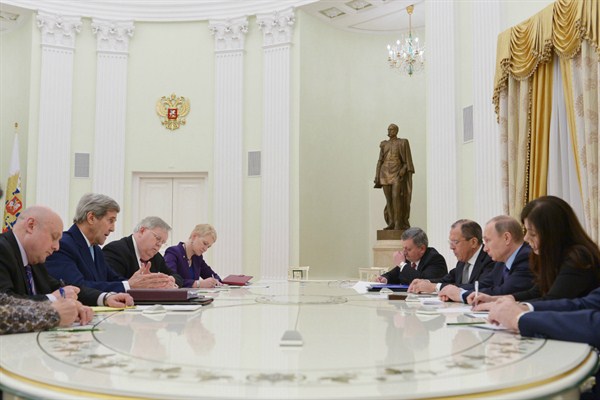International conflict management is not necessarily a rewarding occupation for people who have neat and orderly minds. Well-made plans tend to fall apart in fast-moving crises. As I noted in a chapter in a book on the Security Council published earlier this year, the recent history of United Nations peace operations is basically a story of “one damn thing after another.” U.N. forces have repeatedly been caught off-guard by upsurges in violence and entangled in intractable struggles that they can help mitigate but cannot resolve. This is not only true for the blue helmets. In the United States, analysts once blamed the disasters of Iraq and Afghanistan on President George W. Bush administration’s lackadaisical postwar planning. Now they are less sure.
“In Iraq, the U.S. intervened and occupied, and the result was a costly disaster,” Philip Gordon, a former National Security Council official and President Barack Obama’s main Middle East adviser from 2013 until the spring of this year, recently observed. “In Libya, the U.S. intervened and did not occupy, and the result was a costly disaster. In Syria, the U.S. neither intervened nor occupied, and the result is a costly disaster.” Clearly, it is unwise to make concrete predictions about individual conflicts, as I wrote last week.
Yet looking ahead, it is still possible to spy out a series of big questions that will shape the evolution of crisis management more generally in 2016. Here are seven.

